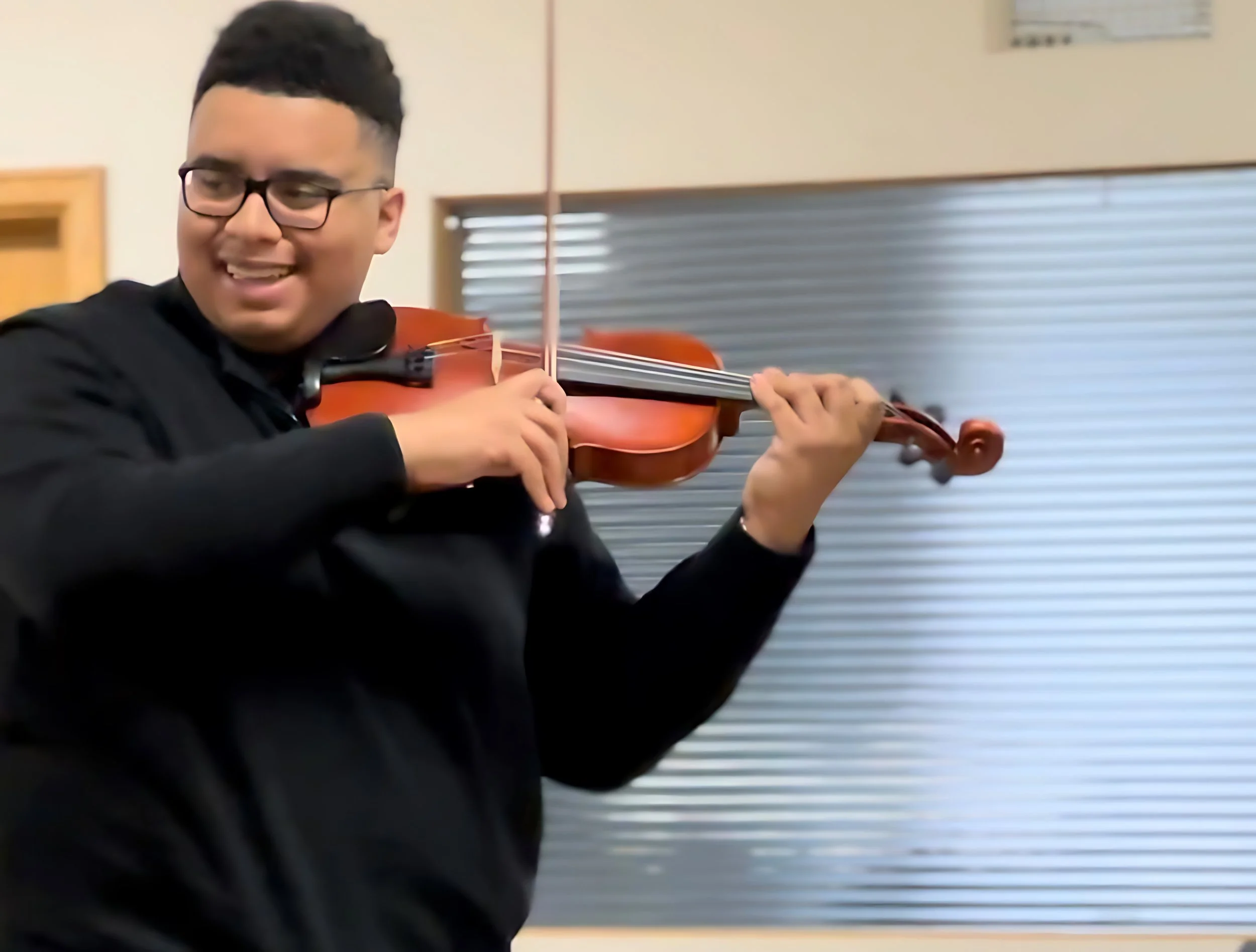Exposure Therapy: Helping Perfectionists
Violin A class learning to be flexible and silly by playing on the floor!
Failure is a part of life. It’s an important part - - they say; but truth be told, I’ve spent the majority of my life avoiding it at all costs. When I look back at my experiences, being a perfectionist has actually gotten me pretty far; it has helped me to be prepared and achieve many of my life goals. On the other hand, avoiding failure has moderated my potential and kept me from learning and enjoying special moments.
Here’s an example: As an adult, I went skiing for the first time in Aspen, CO (I know my life is sad LOL). I spent an entire day in Ski lessons with a skilled instructor. I was careful; I managed to stay on my feet throughout the entire day – I did not fall once. At the end of the lesson, the instructor recommended who could try going up into the mountain and ski back down on their own – I was not selected. Why!? I didn’t even fall! Our teacher pulled me aside and told me that he didn’t think I took enough risks to be able to “handle” an actual slope. I hadn’t developed the skills, or flexibility to be trusted on my own.
This was actually a pretty big turning point in my life. For years, I’ve been encouraging my students to take risks, to let themselves prioritize expression over accuracy, that nobody hears the little mistakes if you’re really going for it and showing your artistic vision. But I wasn’t willing to actually do it myself – especially in front of an audience. I’ve been told that my playing is, “safe” my entire life and one skiing lesson taught me what that actually means. Looking back, I squandered so many learning opportunities by ensuring that I wouldn’t fail in front of an audience. I didn’t allow myself the opportunity to actually learn about myself, my playing, my preparation, my colleagues, or my instructors because I was too afraid of making one single mistake. YUCK. So, it’s time to get to work:
Let’s start with some inspiration:
“I’ve failed over and over and over again in my life and that is why I succeed.” – Michael Jordan
What an inspirational quote and we all know it’s true; but especially for us perfectionist adults, accepting it is easier said than done.
Cue the experts: I’ve scoured self-help books, parenting articles, and Google for the best ways to help ourselves and our kids overcome some perfectionist thinking. Below is expert advice tailored to your musical education:
1.)Ask Questions about the Process: practice with your kiddo. Ask them take part in the problem-solving of practicing: “pick two ways to practice this,” or “how can we make this section easier?” Tools help.
Sinecio has an imperfect moment during a recital and is able to make light of it.
2.)Put Kids in a Safe Space to Take Risks: you think you’re a safe space, but maybe not. Your child needs to trust that you will still LOVE them, if they fail. I’m not joking and it sounds absurd but they need to know that you will not think less of them. No faces. Group class is a great place to take risks because the students, parents, and faculty get it. I love witnessing earnest, real mistakes from someone who is trying – not because I’m a sadist but because it means they are willing to TRY.
3.)Try New Things: with your child. Let them write their own piece, play a different game, do their idea in practicing, not just yours. It’s silly and lets them know you’re open-minded. Try to find some practice time throughout the week to allow for some open-ended goofiness.
4.)Model Behavior: adults can do hard things, too. And fail. And we’ll live. Sure the stakes are higher – but are they really?
5.)Don’t be Afraid of the Word Mistake: Is this true? I haven’t decided yet. I hate the word mistake because of its negative connotation but maybe I should just use it more.
6.)Expectations: we do not expect every recital to go perfectly – or any recital. Every person will make mistakes in every recital they will ever give – promise. Perfection is not the goal. Flexibility, communication, and enjoyment are. Kids need to hear this often.
7.)Choose the Right Words: “it’s ok,” “you’ll do better next time,” can be infuriating to hear when you think you just played a “bad” recital. Be honest but not too honest. Empathy works; I mean truly knowing. An authentic, “I know that you’re upset,” or “I know it feels bad, but this is part of progress,” feels better to hear. It will not make your child magically feel better and that’s ok, but it won’t feel like a lie.
8.) Go See Live Music: You’ll start seeing all KINDS of mistakes (if you’re looking) and it’s liberating. And you’ll still enjoy yourself.
Perfectionism is a thing. It’s a thing that can make us better but also hold us back. Studies show it’s worse now in our kids than ever before (probably due to comparing culture on social media); but let’s help our kids learn to deal with it through music; they’re already doing it (failing I mean) – let’s just help them be ok with it.


